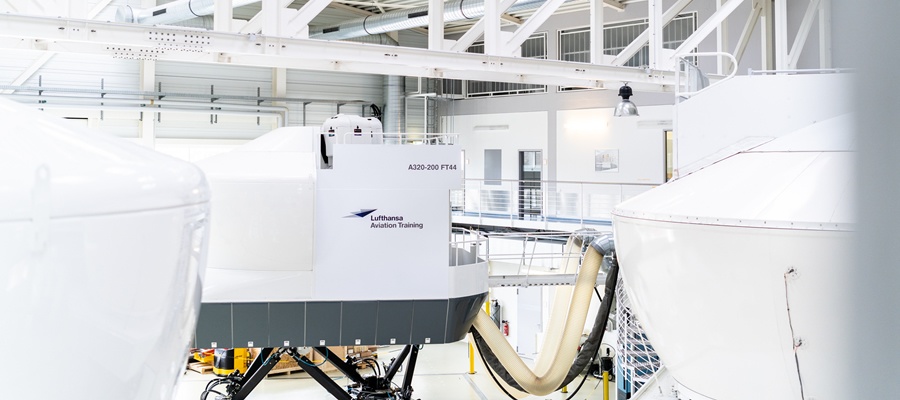Lufthansa Aviation Training (LAT) is investing a total of €89 million in pilot training equipment and in the infrastructure of its own training locations to meet the high customer demand.
Currently, Lufthansa Aviation Training operates 54 full flight simulators (FFS), and, with a load factor of around 90 percent, achieves a peak value in the industry. In 2019 and 2020, the training fleet of the leading training provider for cockpit and cabin personnel in Europe is going to be upgraded to 60 simulators through new purchases.
At both Lufthansa hubs in Frankfurt and Munich, LAT is responding to the fleet strategy of Lufthansa Airlines: In Frankfurt two Boeing 777-9 FFS are scheduled to go into service as well as one Airbus A350 FFS in Munich. There is an increasing need for training on both aircraft types considering the integration of Boeing 777-9 jets within Lufthansa Airlines in 2020 and with regard to the Airbus A350 aircraft based in Munich. All three simulators will be ready for training by mid to late 2020.
LAT is taking a further important step by investing in its first own combined helicopter simulator H145/135 to go into service at the training center in Frankfurt.
The training location of LAT in Munich, which currently operates four FFS, will be expanded by four additional spaces by 2020, two of which are planned for the new A350 FFS and one for the Embraer 190 FFS to be taken over from Frankfurt. The remaining two spaces will be used for flexible further planning, taking into account the growth at the Munich hub.
In Vienna, LAT is not only pursuing the necessity of serving the existing training volume in Austria but also the motivation to seize further market opportunities as a training provider. The simulator center, which currently accommodates four FFS, will be extended gaining three additional FFS spots and two more for flight training devices (FTD). In 2020, two of the three newly won simulator spaces will be used for the Airbus A320 simulators coming from Berlin, one will initially remain free for flexible future use.

